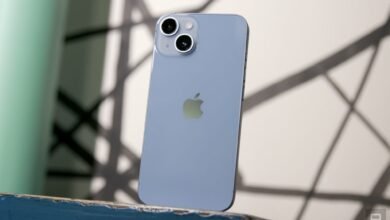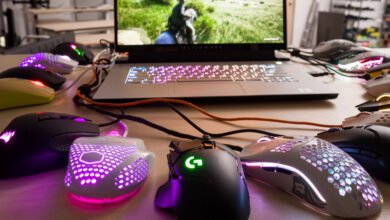4 Reasons You Should Still Consider Buying HDDs 2024

Is it always better to choose an SSD over an HDD? In the past 20 years, I’ve been building PCs, and each one has had at least one hard drive (HDD). The next one I build will also have one. Even though solid-state State Drives are better in many ways, Hard Disk Drives should not be thrown out.
A large-capacity HDD is Still Cheaper Than an SSD
Since HDDs are cheap and have a lot of space, that’s probably the main reason why people still buy them. Not if you need more than 4TB of space and don’t want to spend a lot of money. HDD are always better than SSD.
If you only need one or two terabytes, the price difference doesn’t matter much. The price of a 1TB 2.5in SSD might only be ten or twenty dollars more than a 1TB hard drive, but as the storage size goes up, the price-to-capacity ratio moves in HDD’s favor. A basic 4TB SSD will cost around $200, and if you want something from a high-end name like Samsung, Crucial, or PNY, it will likely cost an extra $100 to $150.

When I look at the 4TB Seagate Ironwolf Pro HDD I bought for less than $100, it seems like a great deal. By putting my PC’s storage on both a smaller SSD and a much larger HDD, I get fast boot and load times as well as a lot of room for my files. And it all costs less than half of what a single big solid-state drive would.
Also Read: How to Choose the Right SSD Drive for Your Needs in 2023
HDDs Can Be Safer for long-term Term Storage
A lot of the things I do at work and in my free time, like making videos and taking pictures, make big digital files. Whenever I finish a job for work or fun, I put it on the HDD that is plugged into my external hard drive dock. Before a new drive is put in, the old one is safely stored, sometimes for years without being used.
It’s not something that everyone needs or wants to use, but it works for me. Also, I know that when I need to view a file on one of those drives that is years old, they won’t have lost any data.
Because the data is kept on very small electrical charges, an unpowered SSD can lose or leak data. No matter how well the cases are made, the charges can leak over time. If they don’t get power from time to time, the charges slowly lose their strength to the point where data can be lost.
Just so you know, this isn’t something that will happen in a few weeks. Take care not to lose any important files while you’re on vacation this summer. Most SSDs won’t lose data if they are left unplugged for about a year, and many later drives are safe for much longer.
But for the long-term archiving I do, hard drives are still the best value and most stable choice.
The Speed Gap Can Be Closed With Memory Cache Devices
People who chose or had to use a hard disk drive had hope with Intel’s Optane Memory devices. They showed that a slow drive didn’t have to mean bad performance.
In 2017, Intel added the Optane Memory cache series to their line of devices as a way to speed up the read and write speeds of hard drives through a feature called Data Drive Acceleration.
These M.2 SSDs with 16, 32, or 64GB of space were made to sit between the processor and the hard drive and store frequently used files and programs. There would be a clear improvement in general performance if frequently used files and data could be accessed from faster solid-state storage. If you add a 32GB Optane Memory M10 to your PC, Intel says that it could get information between 2.4 and 3.8 times faster than if you only used an HDD. Hey.
The Optane Memory line stopped making products a few years ago, which makes it harder to find and use. On Amazon, you can find the Optane M10 for as little as $10. However, your Intel processor and CPU must be Optane-ready to use it. You can’t use it if your Intel CPU is from the 12th, 13th, or 14th generation.
For something different, you could get a “hybrid” hard drive like the Seagate Exos line. This is an HDD that has a few gigabytes of flash storage built in. This is used as cache memory by the drive automatically, which is similar to the idea behind Optane. However, all of this is handled internally, so the user doesn’t see it as anything special.
SSD Benefits Aren’t Always Required
While having an SSD as my main drive is great, there are times when more performance isn’t needed. Example: the computer I constructed for my father.
Besides his modest budget, which prevented him from buying a $200 M.2 or 2.5-inch drive, he didn’t need rapid read/write speeds. His occasional use won’t require gaming or significant file access, so waiting 20–30 seconds for it to boot is fine.
Saving on storage freed up funds for RAM and CPU upgrades. Either upgrade could boost PC performance more than an SSD over an HDD.
The key is determining how the computer will be used and choosing storage solutions accordingly. The 4TB SSD is nice, but is it necessary?
Summary
Solid-state drives are beneficial and should be included in any PC design. That doesn’t imply HDDs should be ignored. HDDs are still the best choice for cheap, reliable storage.











